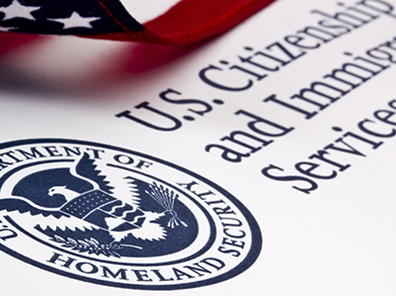
Usually the well-to-do and the well-connected manage things so that they are not hurt by widespread problems, like the current partial shutdown of the U.S. government.
There was, in the past, the Civil War arrangement in which the wealthy could hire others to take their places in the army, and currently there are government shutdown provisions that see to it that those who work in the White House, and on the Hill, remain on the payroll while hundreds of thousands of other feds either have to work without (current) pay, or have been furloughed.
For the moment, the EB-5 program, the immigrant investor scheme designed to help both alien and citizen millionaires, is an exception to that old rule. The main elements of the program — there are some minor exceptions — are in the deep freeze and will stay there until the current conflict between Donald Trump and congressional Democrats is resolved. The usually advantaged are not well treated in this situation.
Ironically, one of those potentially hurt (or at least inconvenienced) by the EB-5 situation is the president's in-laws, the Kushner family, which has used low-interest money from EB-5 aliens extensively in the past.
Let's see how alien millionaires and American middlemen have been impacted by the EB-5 freeze:
- Aliens wanting to buy a family-sized batch of green cards for a half-million EB-5 investment can't get their (Form I-526) applications processed;
- As a result, the big-city developers and their allies in the regional centers cannot get their hands on the aliens' I-526 cash, at least for the time being;
- Would-be regional center middleman operators, usually well-to-do U.S. citizens, will not be able to get the government to consider their I-924 applications for new regional centers. There is no shortage of these entities, by the way, and, as a matter of fact, their number will soon reach 924, if current trends continue.
But, as in most such matters, there are exceptions that prove the rule.
One set of applications still being processed do not bring any money into the U.S. economy at all, as the half-million investments have already been used. These are the applications (I-829) filed by aliens who have put their money into EB-5 projects, usually two or more years earlier, and they now want their current conditional green cards turned into permanent ones.
A minor flow of money — but none of it helping citizen developers — are the $1 million or more EB-5 investments made in specific, middlemen-free arrangements in which the investors plan to run their own projects. There are usually one or two of them to every hundred at the $500,000 level.
The reason for the last quirk is that the bulk of the EB-5 program, dealing with regional centers and the $500,000 investments, is on hold because the temporary authorization for it is in limbo, as it is riding on the now-stalled DHS spending bill. The rarely used $1 million part of the program is based on permanent, not temporary, legislation, so it continues.
Since USCIS is largely funded by fees, rather than tax funds, some of its operations are still underway, which explains why the I-829s are being processed.
Thinking about all this, I would not like to be in the shoes of the EB-5 agent in China trying to explain to his or her EB-5 customers there why the U.S. government is acting this way.
After all, in Chinese history if the emperor wanted to build a wall, the wall was built.
For a text of a not-very-clear agency description of the DHS position on this matter, see here, and for a more helpful explanation in English, and several Asian languages, see an article by a U.S. lawyer, Robert Blanco, here.
